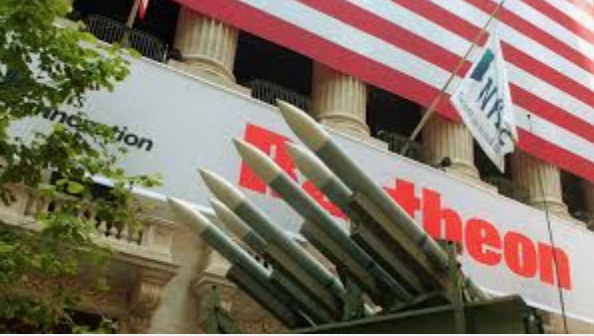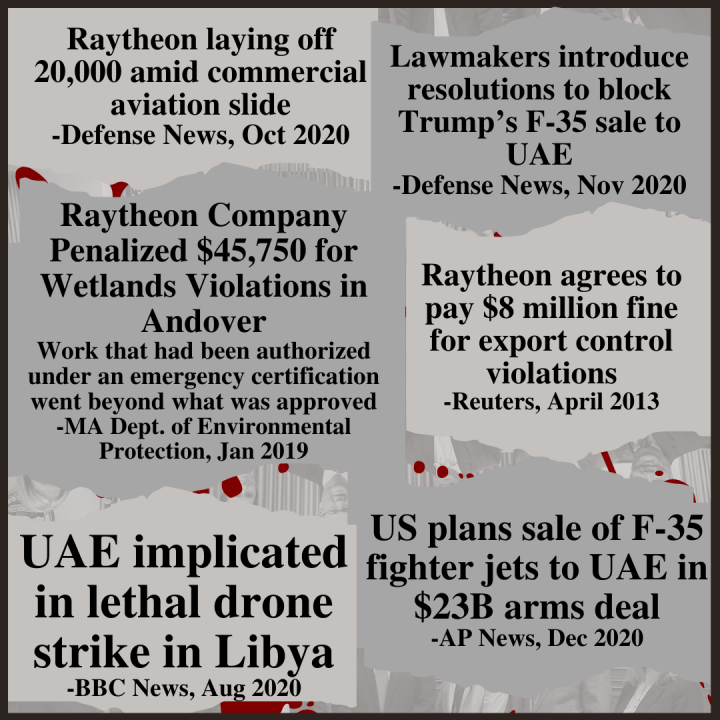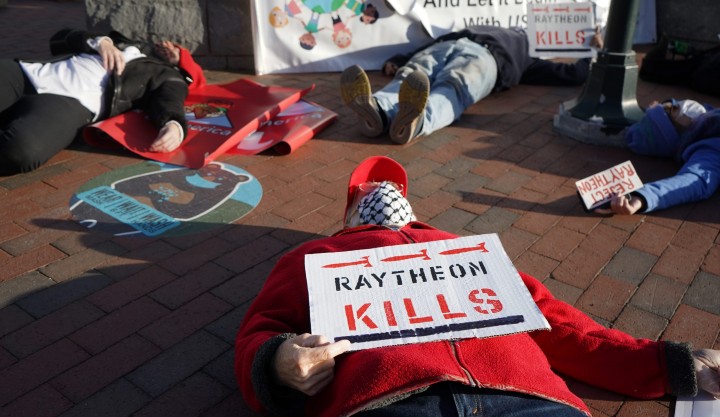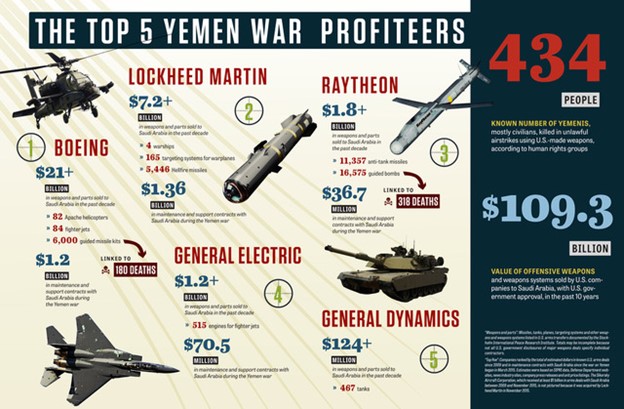If you are skeptical that the United States’ economy is a war economy, consider the following:
The US spends more on military and defense than the next 10 countries combined. The US military/national security budget for FY 2020 was $1,285,000,000,000 (that’s trillion). That’s over $2,444,825/minute, or more than $40,000/second!
Furthermore, the US is the largest seller of arms in the world! Defense contracting is BIG business. Raytheon, and Pratt & Whitney are part of this lucrative enterprise. Watch the video below to see the flow of US arms sales in the world over 67 years.
The United States of Arms from Will Geary on Vimeo.
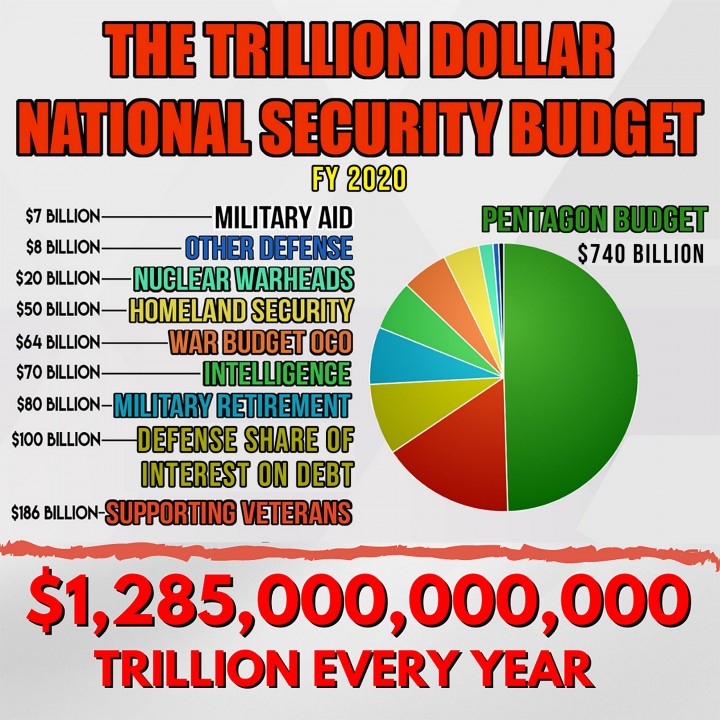
Why don’t we want Raytheon in Buncombe County?
There are many reasons not to want Raytheon, the parent compony of Pratt & Whitney, as a local employer. War profiteers generally do not make good community members.
Raytheon was founded in 1922 as the American Appliance Company, originally focused on refrigeration technology, but soon shifting to electronics. in 1925, it changed its name to Raytheon Manufacturing Company, soon becoming one of the world’s largest vacuum tube manufacturing companies. During and after World War II, Raytheon specialized in radar systems, microwave technology, and guided missile systems.
In the 1990s, Raytheon more fully entered the defense industry, making the Patriot missile and acquiring the Hughes Aircraft Company and Hughes Electronics Corporation. In the early 21st century, it moved into robotics, next-generation radar systems, cybersecurity, and missile defense systems. In April 2020, it merged with United Technologies, of which Pratt & Whitney was a division, forming Raytheon Technologies and becoming the second largest aerospace and defense company in the world.
Raytheon, whose name means, God’s Ray, is now a Fortune 50 company, valued at over $100 billion with FY 2019 revenues over $77 billion. By comparison, Pratt & Whitney enjoyed $20.9 billion in net revenue in FY 2019. Raytheon’s CEO makes $21.5 million per year. It is a leading electronics and propulsion company in the aerospace industry, focusing on planes and missiles, sensors, digital radar, air traffic control, satellites, communications networks, battle management, logistics, electronic warfare, hypersonic weapons, and cybersecurity. It has 195,000 employees, the vast majority of whom are highly skilled. That includes over 60,000 engineers working on aerospace and defense technology, often with high-level clearances in the case of military work.
The United States is the world’s leading arms dealer and Raytheon is a leading profiteer in this commerce. Known for it role in supplying Saudi Arabia with weapons for its genocidal war on Yemen, it also produces components for nuclear weapons, drones, a new nuclear cruise missile, engines for the state-of-the-art F-35 fighter jet, and surveillance equipment for the militarized borderlands in Arizona.
Raytheon is a major player in the military-industrial complex and, as such, has enormous influence in foreign policy decisions. The current US Secretary of Defense, Lloyd Austin, is on the board of Raytheon and the Secretary of Defense before him, Mark Esper, was a Raytheon lobbyist. A number of President Biden’s advisors come from the think tank Center for Strategic and International Studies (CSIS) which is heavily funded by defense contractors, including Raytheon.
Raytheon also has a reputation for creating and neglecting environmental problems, with over 90 law suits having sought damages for removing or cleaning up tainted soil. In California, Raytheon admitted to leaking chemicals but would not take responsibility for the clean up. In Tucson, Arizona, over 50,000 were adversely affected by contaminated water. St Petersburg, Florida has been litigating toxic waste sites left by Raytheon. There have also been many other legal violations by Raytheon.
Like most multinational corporations, Raytheon cares about profit, not people.
More resources about Raytheon’s role in warmaking.

